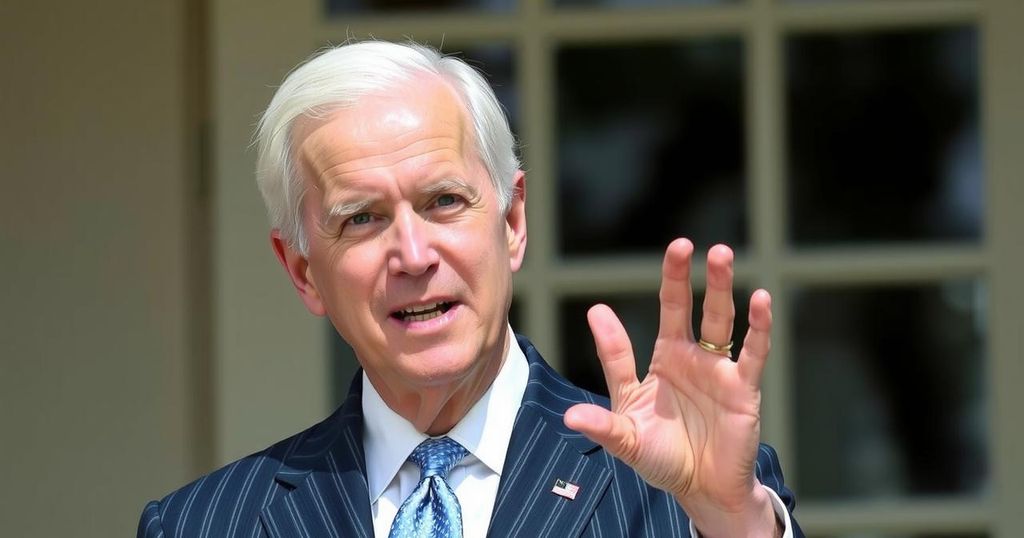Biden Administration Extends Iran Sanctions Waiver Post-Election

The Biden administration has extended a sanctions waiver for Iran, allowing approximately $10 billion in payments from Iraq. This decision follows Donald Trump’s election victory and has attracted criticism from Republicans who argue it enables Iran’s funding of terrorism and nuclear ambitions. The waiver’s future is uncertain as the Trump administration prepares to assume power in January.
The Biden administration has renewed a sanctions waiver allowing Iran to access approximately $10 billion in payments from Iraq, a decision that emerged two days after President-elect Donald Trump secured his election victory. Secretary of State Antony Blinken confirmed the extension of this controversial waiver, which enables humanitarian trade and allows Iran to utilize accounts in Iraq and Oman. Critics, particularly from the Republican Party, argue that this access could fund Iran’s support for terrorism and its nuclear ambitions.
The waiver has been extended for the 23rd time since its initiation in 2018 during the first Trump administration, now valid for an additional 120 days. The Biden administration maintains that this action is crucial for ensuring a stable and secure Iraq, which is perceived as necessary to counteract Iran’s negative influence in the region. Congressional measures have granted the president authority to suspend sanctions when deemed in the national interest, although there is significant discontent amongst Republican lawmakers regarding this excessive leniency towards Iran.
As the Trump administration prepares to take office in January, the future of this sanctions relief remains uncertain, with Republican leaders expressing their concern over the potential funding of Iranian-backed proxy groups that threaten U.S. forces. House Foreign Affairs Committee Chairman Michael McCaul has argued that the continued waiving of sanctions only enhances Iran’s capacity to engage in malign activities. He noted that the House has previously voted to eliminate such waiver authorities, highlighting the discontent with the Biden administration’s stance on this issue.
Ultimately, whether the incoming Trump administration will extend the waiver again post-inauguration remains unclear, as his transition team has yet to provide a response regarding the continuation of sanctions relief for Iran.
This article discusses the renewal of a sanctions waiver by the Biden administration allowing Iran access to funds originating from Iraq. The waiver has garnered controversy due to its potential facilitation of Iranian support for terrorism and nuclear development. This decision follows the recent victory of Donald Trump in the presidential election, leading to speculation about future U.S. policy towards Iran under his administration. The background also touches on previous congressional actions aimed at limiting such waivers, highlighting a divide in opinion regarding how to manage Iranian relations.
In conclusion, the Biden administration’s renewal of the sanctions waiver permitting Iran access to significant funds has sparked considerable debate and criticism, particularly from Republican leaders. Concerns are centered around the potential implications of these funds in supporting terrorism and nuclear initiatives. As the transition to a new administration approaches, the future of such waivers remains uncertain, leaving room for further discussion on U.S. strategy towards Iran’s activities in the Middle East.
Original Source: www.foxnews.com






